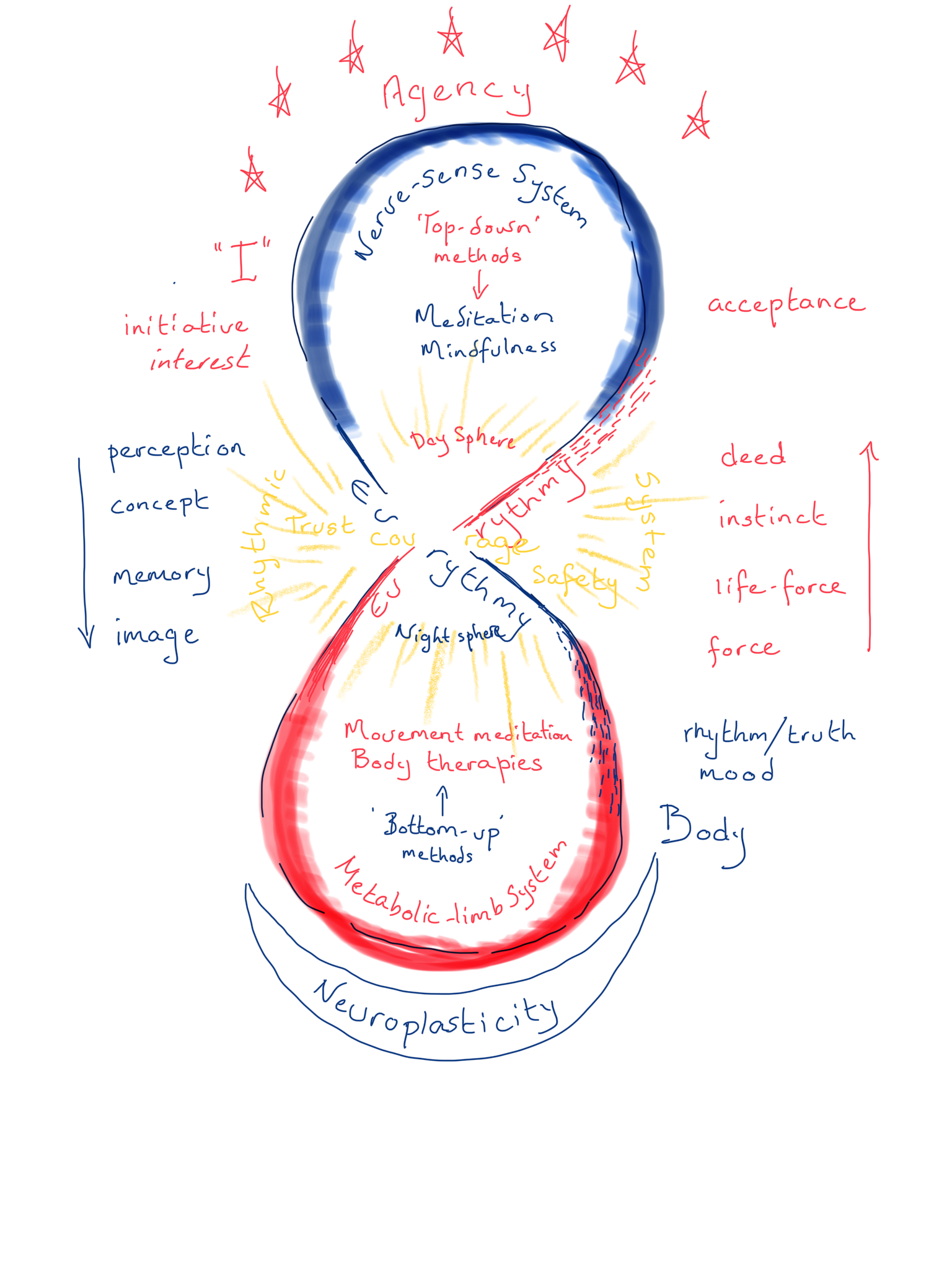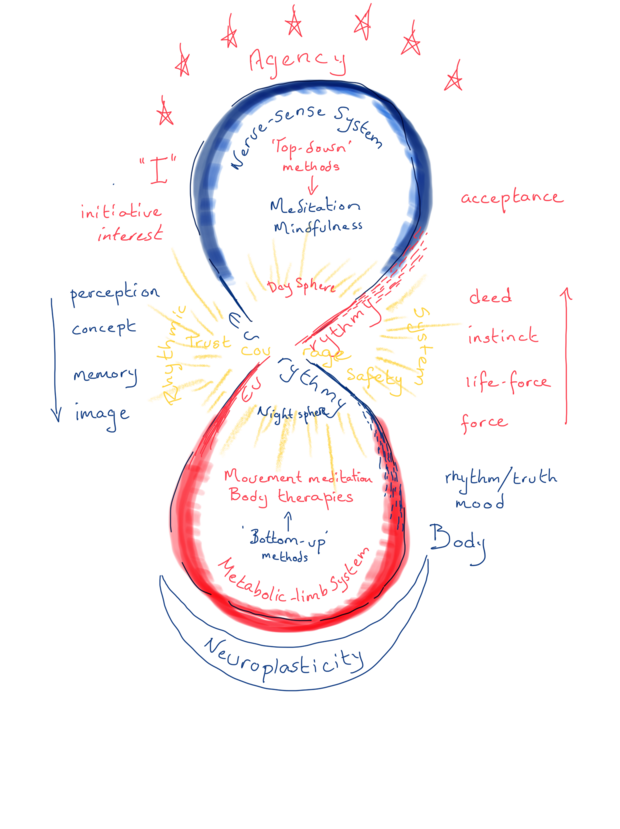Eurythmy Therapy for Chronic Pain
Case study by Adele Waldmann
For my MA Eurythmy Therapy Thesis I completed a Single Case Study with the topic „Eurythmy Therapy for Chronic Pain“. In the course of this study it became clear that the patient's suffering was caused by Post Traumatic Stress Disorder.
ABSTRACT
Undiagnosed chronic pain is an increasing problem with few effective therapies. In this case the symptoms complex included: emotional lability, palpitations, nervous cough, nausea and vomiting, painful bleeding haemorrhoids, coldness, anaemia, dissociation and long-term opiate use. Primary aims of investigation were finding the cause of the various symptoms, understanding the mechanisms and establishing appropriate Eurythmy Therapy measures.
The symptom complex was investigated by comparing conventional medicine, Anthroposophical Medicine and Eurythmy Therapy. Parameters for the study were: a one-on-one setting; an empirical approach; no referral or diagnosis from a medical doctor; with research methods including discussion with colleagues, literature reviews and patient anamnesis. The time frame for this single case study was twenty-four sessions over ten months.
The diagnosis and treatment of Post-Traumatic Stress Disorder (PTSD) in clinical practise indicates primary components of effective therapies as being: meditation, movement meditation and “agency”. These factors enhance “executive function”; self-perception; interoception; proprioception and neuroplasticity. Eurythmy Therapy resembles movement therapies considered effective in conventional practice.
Effects of Eurythmy Therapy are difficult to quantify. This case study indicates it to be an effective adjuvant treatment for symptoms of chronic pain caused by PTSD. During the course of therapy symptoms of emotional lability, palpitations, nausea, situational pain and haemorrhoidal bleeding were relieved. Anthroposophical medicines supported the relief of anaemia, chronic pain and the cessation of opiate usage. Recommending further research, the study aids the understanding of Eurythmy Therapy and Anthroposophical Medicine approaches to chronic pain and PTSD, placing these therapies within a greater context to promote the interdisciplinary discourse.
The causes of PTSD, individual patient constitutions, resources, resilience and individual symptoms vary very greatly. This suggests that Eurythmy Therapy exercises be chosen to suit the individual patients and their symptoms.
Adele Waldmann


